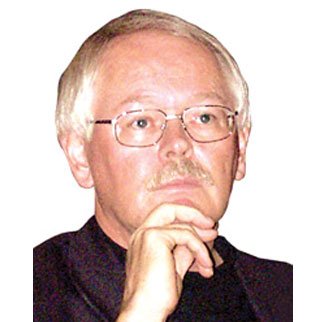
Fr. Ron Rolheiser
Ronald Rolheiser, a Roman Catholic priest and member of the Missionary Oblates of Mary Immaculate, is president of the Oblate School of Theology in San Antonio, Texas.
He is a community-builder, lecturer and writer. His books are popular throughout the English-speaking world and his weekly column is carried by more than seventy newspapers worldwide.
Fr. Rolheiser can be reached at his website, www.ronrolheiser.com.
God’s mercy is inexhaustible
Many of us, I am sure, have been inspired by the movie Of Gods and Men, the story of a group of Trappist monks who, after making a painful decision not to flee from the violence in Algeria in the 1990s, are eventually martyred by Islamic extremists in 1996. Recently, I was much inspired by reading the diaries of one of those monks, Christophe Lebreton. Published under the title Born from the Gaze of God, The Tibhirine Journal of a Martyr Monk, his diaries chronicle the last three years of his life and give us an insight into his, and his community’s, decision to remain in Algeria in the face of almost certain death.
Not all Scripture passages are to be taken literally
A colleague of mine shares this story: Recently, after presiding at Eucharist, a woman from the congregation came up to him with this comment: “What a horrible Scripture reading today! If that’s the kind of God we’re worshipping, then I don’t want to go to Heaven!”
God’s kiss upon our soul
What is the real root of human loneliness? A flaw within our make-up? Inadequacy and sin? Or does Augustine’s famous line, “You have made us for yourself, Lord, and our hearts are restless until they rest in you,” say it all?
If you let it, the book you need will find you
They say that the book you most need to read finds you when you most need to read it. I’ve had that experience many times, most recently with Heather King’s book Shirt of Flame, A Year with St. Therese of Lisieux.
Bowing our heads in humility
At the end of every Roman Catholic liturgy there is an invitation given to the people to receive a blessing. That invitation is worded this way: “Bow your heads and pray for God’s blessing.” The idea behind that, obviously, is that a blessing can only truly be received in reverence, in humility, with head bowed, with pride and arrogance subjugated and silent.
Most of us lack the self-confidence for greatness
We all have our own images of greatness as these pertain to virtue and saintliness. We picture, for instance, St. Francis of Assisi kissing a leper; Mother Teresa publicly hugging a dying beggar; John Paul II standing before a crowd of millions and telling them how much he loves them; Therese of Lisieux telling a fellow community member who has been deliberately cruel to her how much she loves her; even the iconic Veronica, in the crucifixion scene, who amidst all the fear and brutality of the crucifixion rushes forward and wipes the face of Jesus.
Tectonic change around sex in our culture
No generation in history, I suspect, has ever experienced as much change as we have experienced in the past 60 years. That change is not just in the areas of science, technology, medicine, travel and communications, it is especially in the area of our social infrastructure, of our communal ethos. And perhaps nowhere is this change more radical than in how we understand sex. In the past 70 years we have witnessed three major, tectonic shifts in how we understand the place of sex in our lives.
Forever being ahead of our souls
Sometimes nothing is as helpful as a good metaphor.
In his book The God Instinct, Tom Stella shares this story: A number of men who made their living as porters were hired one day to carry a huge load of supplies for a group on safari. Their loads were unusually heavy and the trek through the jungle was on a rough path. Several days into the journey they stopped, unshouldered their loads and refused to go on. No pleas, bribes or threats worked in terms of persuading them to go on. Asked why they couldn’t continue, they answered: “We can’t go on; we have to wait for our souls to catch up with us.”
Only in the silence of our soul
Belgian spiritual writer Bieke Vandekerckhove comes by her wisdom honestly. She didn’t learn what she shares from a book or even primarily from the good example of others. She learned what she shares through the crucible of a unique suffering, being hit at the tender age of 19 with a terminal disease that promised not just an early death but also a complete breakdown and humiliation of her body enroute to that death.
God’s love is unceasing; we could do likewise
Second Sunday in Ordinary Time (Year C) Jan. 17 (Isaiah 62:1-5; Psalm 96; 1 Corinthians 12:4-11; John 2:1-12)
Not everyone is forgiving or patient in the face of human failure. There is often a tendency to write someone off or dismiss their plight as their own fault. There can even be a smug sense of satisfaction when the “victim” is a prominent figure, especially if there are aspects of that person we do not like.

